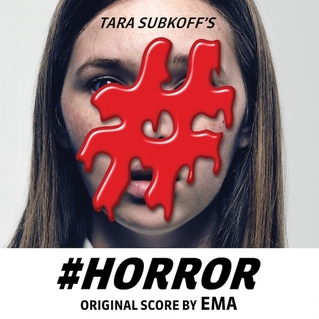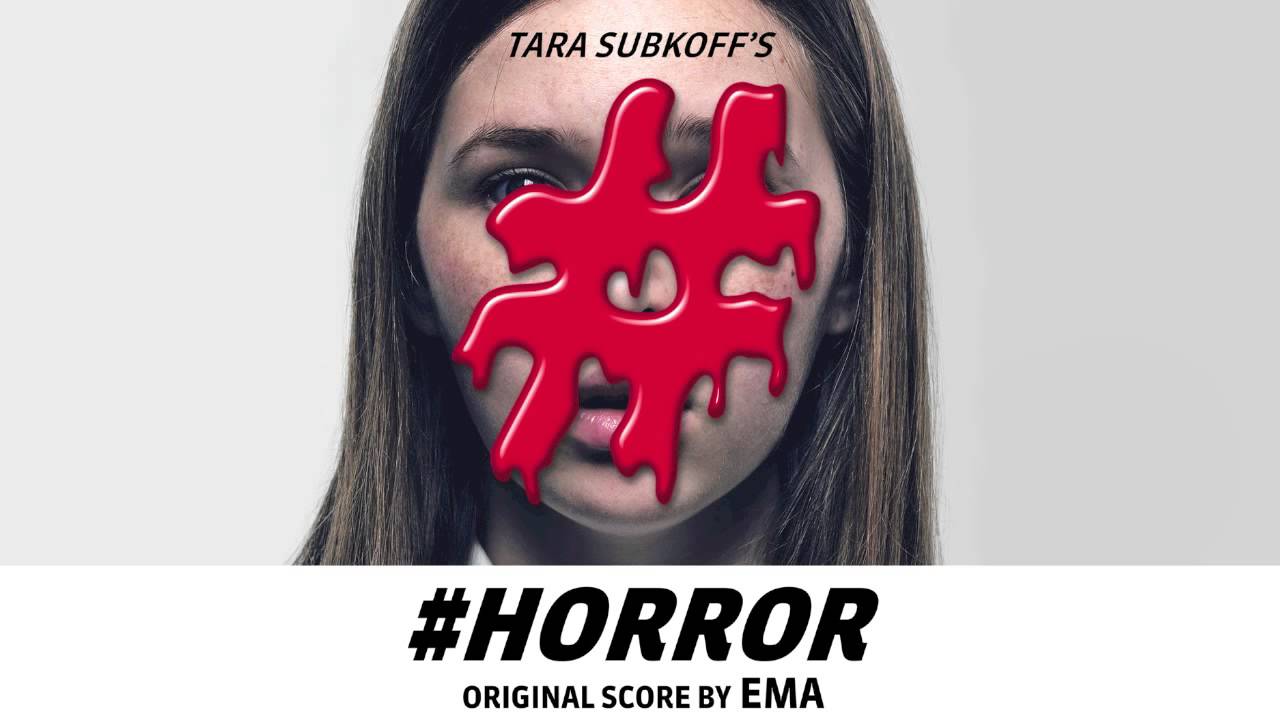Since re-inventing herself as EMA on 2011’s Past Lives Martyred Saints, Erika M. Anderson has been one of the few rock musicians to really engage on an artistic level with our hyperreal, over-saturated life in the 21st century. Last year’s The Future’s Void tackled the black mirror of online identity (here she is talking recently to William Gibson, one of the album’s key inspirations), and in October she released ‘Active Shooter’ (song plus chilling video) in response to yet another mass killing in America. Now, here she is with the soundtrack to Tara Subkoff’s film #HORROR, which takes cyberbullying as its theme.
Isolated from their source inspiration, soundtracks can often feel diminished as a listening experience. But EMA has taken #HORROR’s knowingly post-modern title as a cue to create a score that subtly references many of the masters in this area – Bernard Herrmann, Goblin, John Carpenter etc – while remaining distinctive in its own right. The film itself has had mixed reviews – the trailer combines some interestingly odd images with standard horror tropes – but EMA’s music does what the best scores do, which is run an alternative movie in the listener’s head.
The chanting synthetic voices and ominous copter blade throb of ‘#HORROR Theme’ neatly captures the film’s subtext of young girls trapped inside a ravenous online machine – they think they’re in control, but the machine is playing them. It also makes me wonder if EMA has been listening to Sinoia Caves’ excellent Beyond The Black Rainbow OST, which inhabits similar sonic territory. ‘Visions Of Blood’ is another short cue that recurs in various guises throughout the album, a spectral drone which mimics wine glasses being played in a forest at night.
But the real standout track, and frankly reason alone to check this album out, is the one ‘proper’ song here, the beautiful ‘Amnesia Haze’. Borne aloft by a luminous, glacial synth arpeggio and Anderson’s breathy, narcoleptic vocal, it’s everything I imagine pop music should be in 2015 (but sadly isn’t), all glittering, brittle surfaces reflecting the confusion of our emotional lives. Against the spooky, repeated refrain of “You were just a child", an e-bowed guitar weaves mournfully in the background like blood slowly trickling along a marble worktop. In contrast, the stripped-back version that closes the album feels uncomfortably intimate.
The bells and wordless ululations of ‘Harshmellow World’ could be the celestial entrance music to a Disney-esque world of tomorrow feature from the 1950s, and offers respite from the rest of the album’s panicky, claustrophobic atmosphere. But we’re soon back to suffocating in the dark. ‘Running Danger’ adds the nervy bowing of a cello over that omnipotent electronic pulse, building to full-on Psycho-style strings before morphing into the main theme. ‘Dr White In The House’ meanwhile, is a discordant and visceral sound sweep, the resurgent strings swallowed by the throb of the machine. ‘Foreshadowing Pain’ is a surging black wave of simulated orchestral power, hinting at the existential terror of Ligeti. ‘#Exit Music’ offers some kind of resolution, the cello returning to play a lovely melancholic part with little sparks of feedback around the edges. It transforms into a stately, Michael Nyman-like processional as the machine splutters in its death throes.
With #HORROR Original Score, Anderson has both successfully stepped into the world of cinematic composition and found another project with thematic relevance to her own work. While much modern music remains fixated on an increasingly granular vision of the past, we should be thankful for artists such as EMA who refuse to look away from what’s right in front of us.
<div class="fb-comments" data-href="http://thequietus.com/articles/19427-ema-horror-original-score-review” data-width="550">



